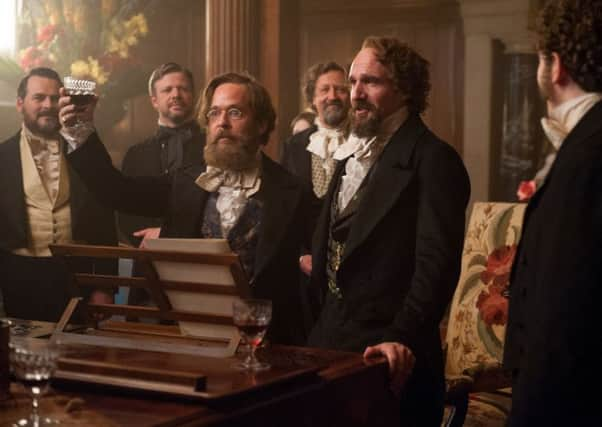Film review: The Invisible Woman (12A, 111 min)


In Greek mythology, the Muses were nine goddesses, who embodied the source of knowledge and the arts.
These heavenly creatures inspired great poetry and literature, and were summoned by Chaucer, Homer, Milton, Shakespeare and Virgil in their texts.
Advertisement
Hide AdAdvertisement
Hide AdIn modern times, a muse has been a collaborator, usually a woman, whose presence has provided a creative spark for artists to produce some of their greatest work.
French director Jean-Luc Godard famously fell under the spell of Anna Karina and eventually took her as his wife, while model Edie Sedgwick entranced Andy Warhol. Singer Patti Smith was a constant companion to gay photographer Robert Mapplethorpe and petty criminal George Dyer incited Francis Bacon to create some of his greatest works.
Based on the book by Claire Tomalin, The Invisible Woman charts the fragile relationship between one of the titans of English literature and his muse.
Oscar nominated actor Ralph Fiennes juggles responsibilities behind and in front of the camera, opening in 1885 Margate, where Nelly Robinson (Felicity Jones) is a school teacher with a doting husband (Tom Burke).
Advertisement
Hide AdAdvertisement
Hide AdHe is powerless to stop Nelly taking long walks on the beach, wrestling with ghosts of her past.
The film rewinds to 1850s Manchester, where Nelly is an aspiring actress in a family of performers headed by domineering mother, Mrs Frances Ternan (Kristin Scott Thomas).
“The rewards of our profession are rarely monetary,” confides the widowed matriarch, “but I would not have it any other way.”
Frances keeps a close eye on her daughters Maria (Perdita Weeks) and Fannie (Amanda Hale), and the least talented of the brood, 18-year-old Nelly.
Advertisement
Hide AdAdvertisement
Hide AdMixing in the theatrical circles, Nelly encounters socially awkward writer Charles Dickens (Fiennes), who neglects long-suffering wife, Catherine (Joanna Scanlan).
Dickens’s fascination with Nelly develops into something far deeper but she is forced to lurk in the shadows for fear of tainting his reputation. When Nelly talks about the possibility of Dickens marrying her, Mrs Ternan is quick to snuff out that smouldering ember of romanticism.
“I have been married and it was at times, the loneliest place,” she counsels.
This is a well-crafted if emotionally stifled account of doomed love and its manifestation on the pages of Dickens’s works.
Advertisement
Hide AdAdvertisement
Hide AdFiennes and Jones deliver solid performances but their on-screen chemistry is almost as muted as the colour palette, while Scanlan is magnificent as the wife, who begs her husband to come to his senses.
“Don’t be foolish. You cannot keep her a secret,” she snaps.
A quotation from A Tale Of Two Cities, displayed at the beginning of the film, argues otherwise, confirming that Dickens was a man who revelled in the “profound secret and mystery” of his fellow man.
If only Fiennes’s film revealed a few more of them.
Drama/Romance. Ralph Fiennes, Felicity Jones, Joanna Scanlan, Michelle Fairley, Kristin Scott Thomas, Tom Hollander, Perdita Weeks, Amanda Hale, Tom Burke. Director: Ralph Fiennes.